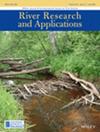如果有鱼从河里出来说话,我们就应该相信它:南非对鱼类死亡的看法
IF 1.9
4区 环境科学与生态学
Q4 ENVIRONMENTAL SCIENCES
引用次数: 0
摘要
在南非,由于与自然资源管理相关的多重压力,鱼类死亡事件越来越频繁。尽管鱼类可为生态系统提供服务,但南非在环境保护方面的渐进式立法似乎否定了对鱼类死亡事件的管理。在本研究中,我们概述了与南非导致鱼类死亡事件的急性污染泄漏相关的报告和法规。此外,我们还以南非 Msunduzi 河 2019 年发生的一起鱼类死亡事件为案例,强调了这些事件的影响。Msunduzi河的鱼类死亡事件表明,鱼类的相对丰度下降了41%,其生态状况已经因管理不善而受到损害。姆松杜兹河的恶劣条件已危及鱼类种群的恢复,需要采取干预措施来恢复鱼类种群,其中包括被国际自然保护联盟列为易危物种的鱼类。我们发现,尽管鱼类死亡情况严重,对鱼类动物(包括濒临灭绝的物种)造成了损害,但南非在管理鱼类死亡方面普遍存在冷漠、无能和缺乏知识的现象。此外,尽管几项立法具有保护自然的良好意愿,但它们并不一致,表明鱼类死亡是事后的想法,而不是需要预防的。在本已因过度使用环境用水而压力重重的情况下,管理不善的做法加剧了这一问题。作为前进的方向,需要对与南非各部委相关的各种法案进行协调,以便更好地保护环境。最后,我们认为,在管理水资源时没有考虑到非洲谚语 "如果鱼从河里出来告诉你鳄鱼只有一只眼睛,你应该相信它",在目前的生态状况和水资源使用情况下,可能不会有鱼 "从水里出来 "警告我们,我们的水不安全,甚至不能供人类消费和使用。本文章由计算机程序翻译,如有差异,请以英文原文为准。
If a fish comes out of the river and speaks, we should believe it: South African perspective on fish kills
In South Africa, fish kill events are increasing in frequency because of multiple stressors associated with managing natural resources. Despite the ecosystem services associated with fish, South Africa's progressive legislation towards environmental protection seems to negate the management of fish kills. In this study, we provide an overview of reports and regulations associated with acute pollution spills resulting in fish kill events in South Africa. In addition, we highlight the implication of these using a fish kill event from 2019 on the Msunduzi River, South Africa, as a case study. The fish kill on the Msunduzi River showed a decline in relative abundance by up to 41%, and its ecological condition was already impaired by poor management. The poor condition of the Msunduzi River has jeopardised the recovery of the fish populations, and intervention is needed to restore the fish population that includes species red‐listed as vulnerable by the International Union for the Conservation of Nature. We found that despite the severity of fish kills and the detriment to the fish fauna, including near‐threatened species, there is a general apathy, incapacity and lack of knowledge on managing fish kills in South Africa. In addition, although several legislated Acts have good intentions for protecting nature, they do not align and show that a fish kill is an afterthought rather than a need to prevent. Poor management practices have exacerbated this in an already stressed state from excessive use of environmental water. As a way forward, the alignment of the various Acts associated with various ministerial departments in South Africa is needed so that better protection of the environment may occur. Finally, we argue that the African proverb ‘If the fish comes out of the river to tell you that the crocodile has one eye, you should believe it ’ is not considered when managing water resources and that with the present ecological state and water resource use there may be no fish to ‘come out of the water’ warning us that our water is unsafe even for human consumption and use.
求助全文
通过发布文献求助,成功后即可免费获取论文全文。
去求助
来源期刊

River Research and Applications
环境科学-环境科学
CiteScore
4.60
自引率
9.10%
发文量
158
审稿时长
6 months
期刊介绍:
River Research and Applications , previously published as Regulated Rivers: Research and Management (1987-2001), is an international journal dedicated to the promotion of basic and applied scientific research on rivers. The journal publishes original scientific and technical papers on biological, ecological, geomorphological, hydrological, engineering and geographical aspects related to rivers in both the developed and developing world. Papers showing how basic studies and new science can be of use in applied problems associated with river management, regulation and restoration are encouraged as is interdisciplinary research concerned directly or indirectly with river management problems.
 求助内容:
求助内容: 应助结果提醒方式:
应助结果提醒方式:


